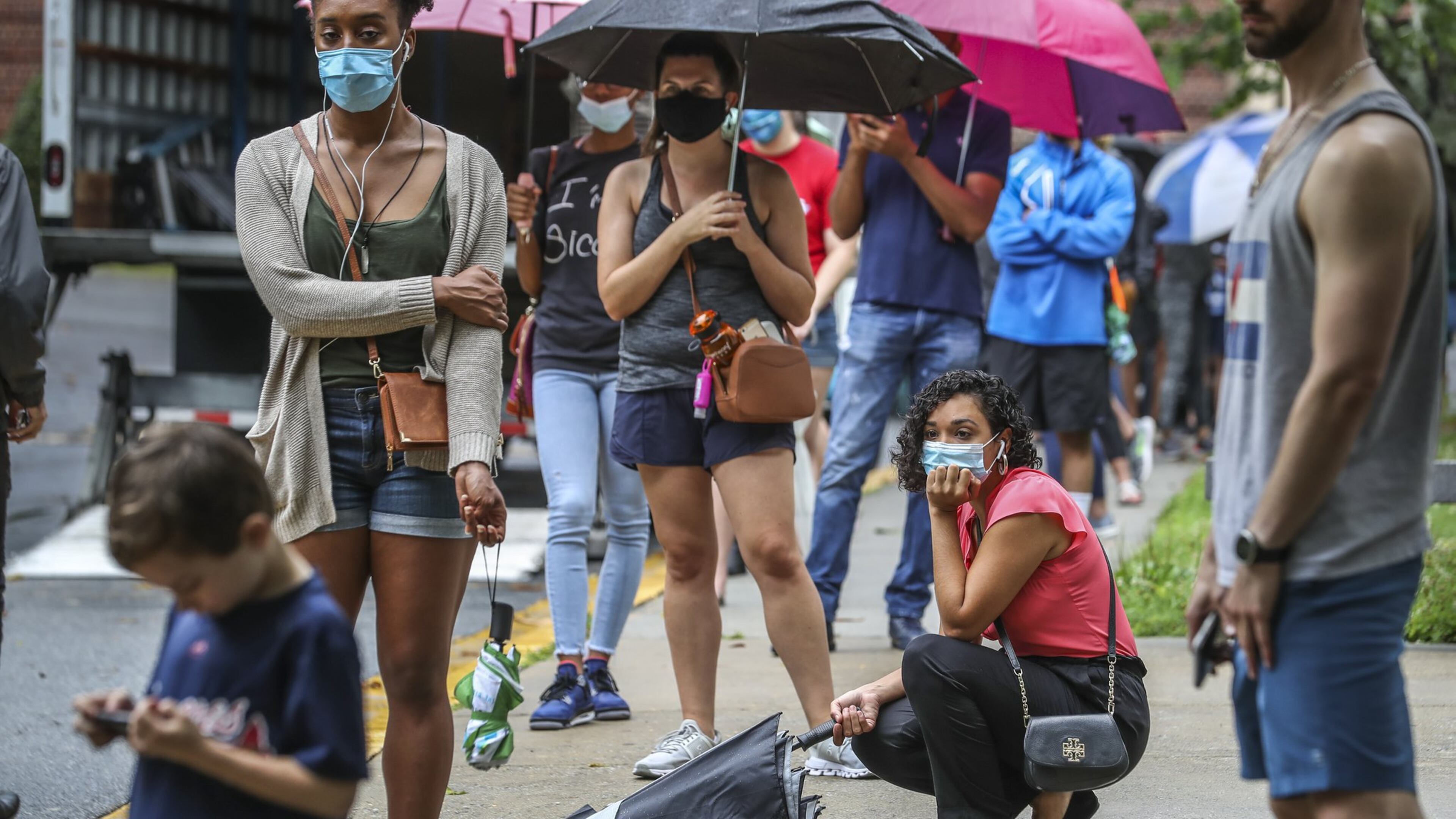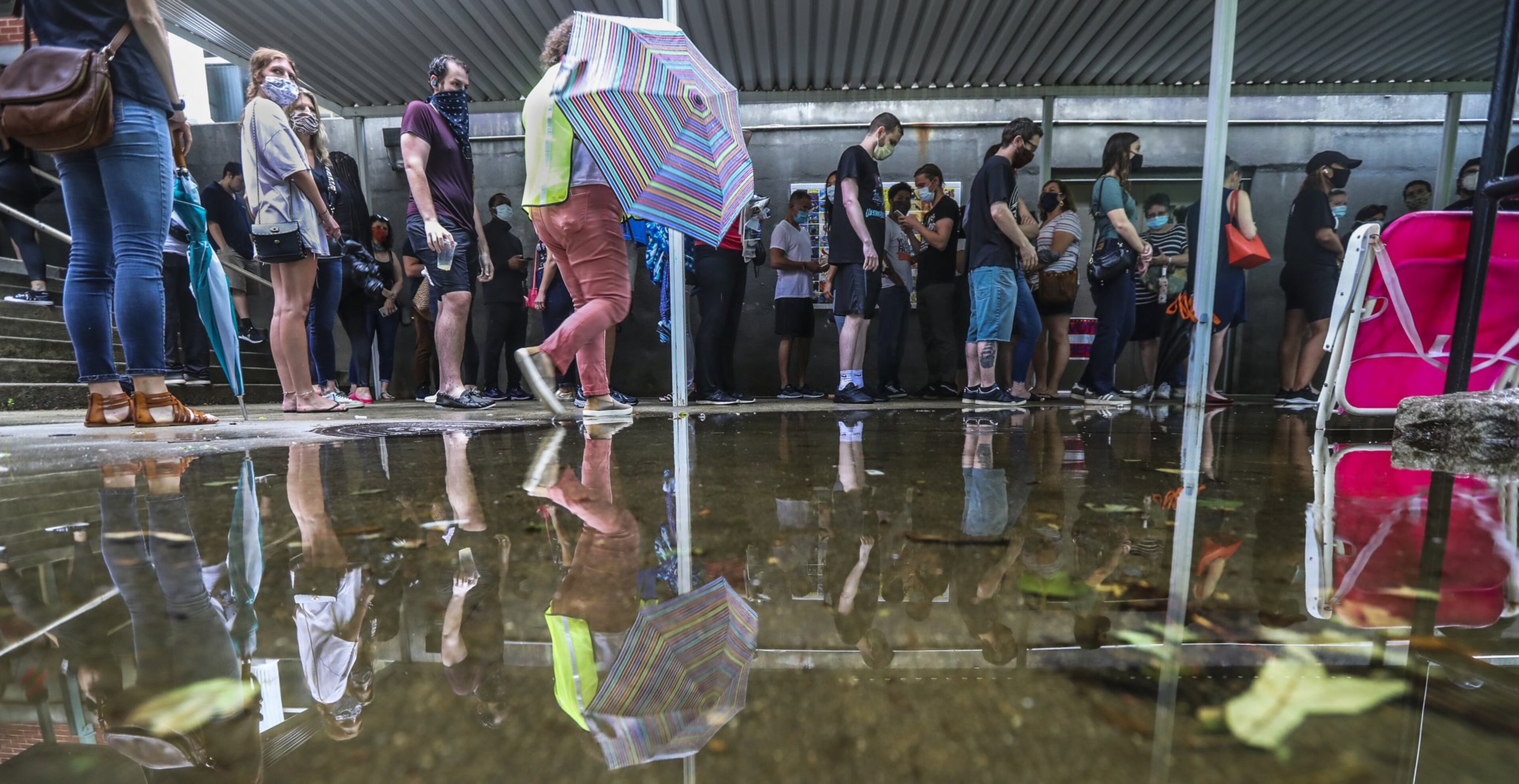Georgia tries to avoid calamity, fix election problems

The Georgia Secretary of State’s Office is working with county elections officials to avoid a repeat of June’s chaotic primary elections that included hours-long lines to vote.
Poll worker jobs will be advertised through social media, newspaper and radio. Tech experts will be dispatched to set up voting equipment. State election officials will tell counties where precincts need to be added.
These efforts are designed to help county election offices prevent problems in primary runoffs Aug. 11 and the presidential election Nov. 3, when election day turnout is expected to be three times higher than the primary.
Whether the measures will work depends on election officials’ ability to get staff hired and trained, add voting locations and manage the ongoing threat of the coronavirus pandemic, which contributed to extensive wait times because of social distancing requirements.
“This is going to take the community coming together” to find new polling places and fix problems, said Gabriel Sterling, an elections manager in the secretary of state’s office. “We can’t force counties to do anything. We can give them tools to meet their needs.”
The effort is still in its early stages in metro Atlanta counties, where local election officials still are evaluating what went wrong in the primary election and trying to identify solutions. State election officials have referred poll workers to counties that were shorthanded, and reviewed data to determine the most overcrowded precincts.
In some cases, polling locations were simply unable to handle all the voters assigned to them, Sterling said. Some locations had fewer than 100 voters throughout the day while other precincts a half-mile away recorded 800 voters.

Some of the longest lines in Fulton County came at consolidated polling places after some longstanding precincts became unavailable during the coronavirus pandemic. Consolidated polling places like Park Tavern in Midtown became a precinct for 16,000 voters.Voters reported waiting as long as four hours to vote at Fulton precincts, some standing through passing rain storms and oppressive humidity in order to cast a ballot.
Fulton has received referrals for new poll workers through the state’s program, county spokeswoman Jessica Corbitt said.
Cobb County, which extended voting hours at 19 precincts because of delayed starts and other issues, has also received poll worker referrals. The county’s poll workers will have access to a training webinar, also provided as part of the secretary of state’s initiative, said Elections Director Janine Eveler.
An upcoming report from the secretary of state’s office will color-code each of Georgia’s 2,600-plus precincts based on their number of voters, equipment and precinct sizes, labeling them as green, yellow, red or black. Locations categorized as red or black need substantial improvements, and some may need to be split into a new precinct to ease the load.
“We’re going to have a very serious conversation with these counties that you need to rationalize your polling locations so that you have an even spread of people, so you don’t have a giant long line in one place and nobody in another,” said Sterling, the state’s voting implementation manager.
But adding precincts won't be easy, especially at a time when churches and organizations that previously served as voting locations refused to let outsiders in because of health concerns. In Fulton County, for example, over 30 voting locations backed out before the primary.
Community groups like Rotary clubs, sororities and fraternities will have to step up to offer voting space, Sterling said. And businesses should consider offering their atriums for voting as well.
“All you need to be a polling location is parking, accessibility and some plugs,” Sterling said.
Some of the delays on election day were caused by voter check-in tablets that didn't encode voter cards because they weren't set up correctly. In addition, voting computers sometimes didn't start up because the power button had to be held in for at least three seconds to avoid inadvertent battery drain.
To address difficulties using the state’s new voting system, the secretary of state’s office will provide laminated troubleshooting guides as a quick reference tool for poll workers. Election officials will also label voting equipment with stickers explaining how to set it up.
The state has also offered assistance in the form of field service technicians to address issues from paper jams to issues with touchscreens, said Kristi Royston, Gwinnett County’s elections director. These technicians could potentially be stationed at all 156 Gwinnett polling places, Royston said.
Voters such as Venus Banks-Tookes of Atlanta say election officials need to step up to stop another election-day disaster.
“They have to do better,” said Banks-Tookes, who recently retired from Delta Air Lines and wants to become a poll worker after waiting over three hours at Fickett Elementary School in southwest Atlanta. “They should be more organized. I was shocked that I waited that long.”
What to watch in the next Georgia elections
- Precinct closures and openings because of the coronavirus pandemic
- Poll worker shortages addressed by new hires
- Tech support staff will help set up voting computers
- Potential lines for the Aug. 11 primary runoff



